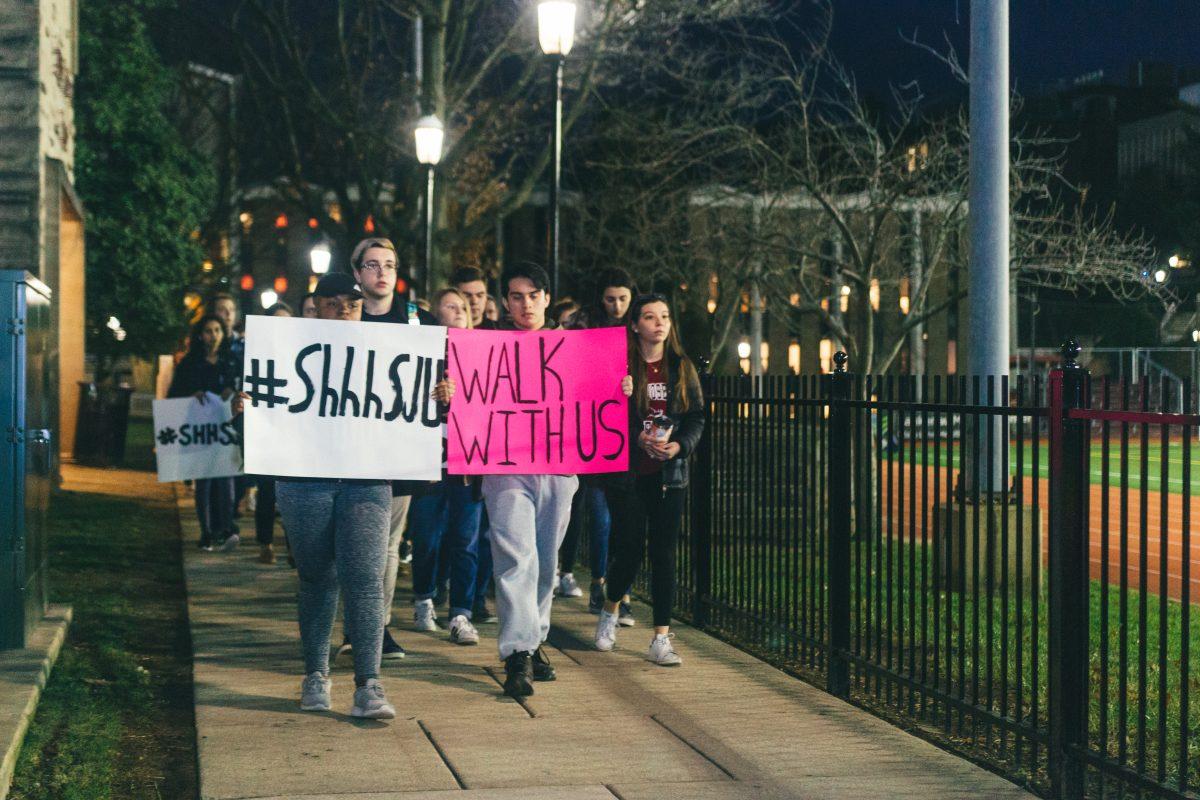The university recently updated a 1972 policy regarding political activity on campus.
The new policy stipulates that students, administrators and teachers are free to engage in political activities, as long as they do not violate other university policies in the process. The mandate was originally submitted to University Council in 2017 and was approved last month.
The old policy did not explicitly specify that these activities cannot violate other uni- versity policies. It also stated that the institutional control of campus facilities should not be used as a device for censorship.
The new policy states that the university should create procedures to apply to outside speakers who are invited to campus.
Paul Apsan, Ph.D., associate professor of theology and religious studies, was one of the creators of the mandate for the policy change. Aspan said it was the political shift following the 2016 elections that motivated the update.
“The election of 2016 brought a change in atmosphere to many universities, a change for worse in terms of the level of hostility and disrespect affecting the body politic on campus,” Aspan said. “SJU did not escape this trend.”
Aspan said harassment experienced from agents external to the university also motivat- ed the policy change.
“We became aware of the need to change our policies on political activities on campus, as well as freedom of assembly and the sponsorship of outside speakers, as the institution had neither revisited nor revised its respective policies since the early 1970s,” Aspen said.
Cary Anderson, Ed.D., associate provost and vice president of Student Life, said the up- date to the policy seemed like a prudent step in anticipation of future elections.
“The recently approved policy adds more clarity to what may or may not be done with regard to political activity on campus in order to comply with the federal tax code which does not allow tax exempt organizations from directly promoting a particular political position,” Anderson said.
Tim Swift, associate professor of marketing and a member of a subcommittee in the Faculty Policies & Procedures (FPP) committee who reviewed the mandate, said his focus was on ensuring the university follows federal requirements for tax-exempt institutions while allowing for community members to continue to actively engage in political activities.
“I hope that the policy helps make SJU a place where all stakeholders can engage in robust, informative and respectful consideration of political issues, while ensuring that the university remains neutral and does not provide support for a candidate or political organization,” Swift said.
Anderson added he hopes students exercise their rights to engage in the political process.
“The policy provides guidance to comply with federal law for those who wish to do so,” Anderson said.
For Aspan, the revision of policy was neither an attempt to encourage or discour- age political engagement on campus.
“We endeavored to read the signs of the times and adjust campus policies in order to make these relevant for and effective within the contemporary environment,” Aspan said. “Every discussion in which I was involved was focused on the need to preserve a healthy environment for the freedom of exchange of ideas, in order to enhance the primary mis- sion of the university, the pursuit of truth.”






































